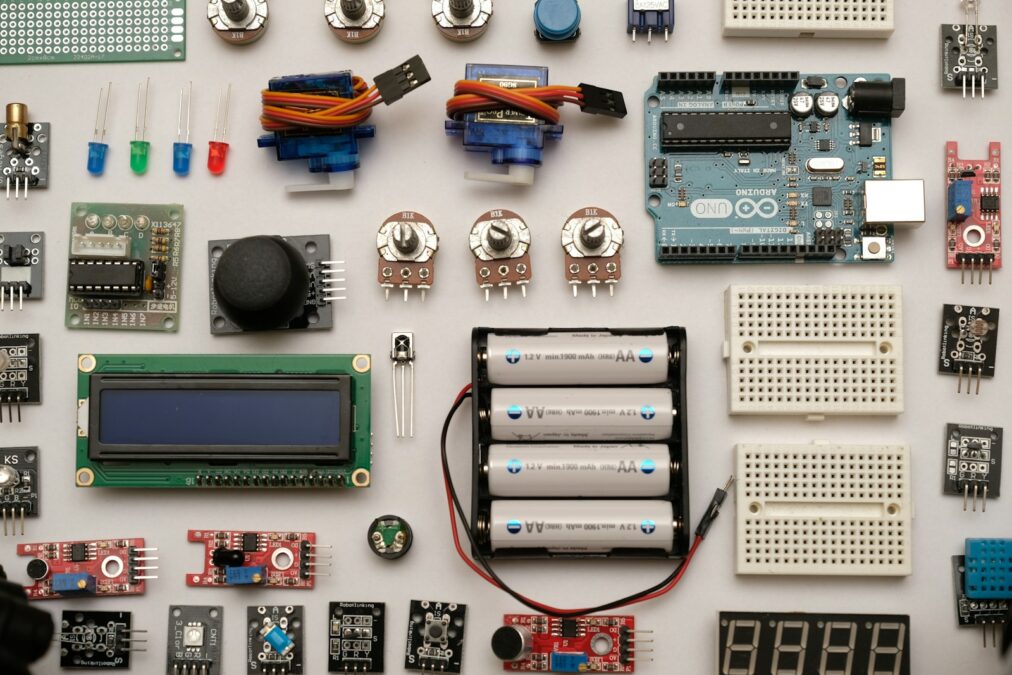Advanced Sensors in Renewable Energy: Optimizing Performance Monitoring
The Role of Advanced Sensors in Renewable Energy Systems
The use of advanced sensors in renewable energy systems has emerged as a game-changer in the quest for sustainable energy solutions. These sensors provide critical data that enhance the performance and efficiency of renewable energy installations, from solar panels to wind turbines. In the Middle East, particularly in regions like Saudi Arabia and the UAE, the integration of advanced sensors is pivotal for maximizing energy output and ensuring grid stability.
Real-Time Data Collection and Analysis
Advanced sensors are designed to collect real-time data on various parameters such as temperature, humidity, wind speed, and solar irradiance. This data is crucial for monitoring the performance of renewable energy systems. For instance, in a solar power plant, sensors can detect minute changes in sunlight intensity, enabling adjustments to optimize energy capture. In wind farms, sensors measure wind speed and direction, ensuring turbines operate at optimal efficiency. By continuously collecting and analyzing data, these sensors provide valuable insights that can be used to enhance system performance and predict maintenance needs.
Enhancing Predictive Maintenance
Predictive maintenance is one of the most significant benefits of using advanced sensors in renewable energy systems. Traditional maintenance schedules are often based on fixed intervals, which can lead to unnecessary downtime or, conversely, unexpected failures. However, sensors can monitor the health of components in real-time, identifying potential issues before they lead to system failures. This proactive approach not only reduces maintenance costs but also minimizes downtime, ensuring a more reliable energy supply. For example, if a sensor detects unusual vibrations in a wind turbine, it can alert operators to inspect and address the issue promptly, preventing costly repairs and extended outages.
Optimizing Energy Output with Advanced Sensors
The implementation of advanced sensors in renewable energy systems significantly optimizes energy output. By providing precise and real-time data, these sensors enable operators to fine-tune system performance and respond swiftly to changing environmental conditions. This optimization is particularly vital in the Middle East, where extreme weather conditions can impact energy production.
Maximizing Solar Energy Efficiency
In solar energy systems, advanced sensors play a crucial role in maximizing efficiency. By continuously monitoring sunlight intensity, panel temperature, and other environmental factors, sensors help maintain optimal operating conditions. For instance, sensors can detect when panels are dirty or covered with dust, prompting cleaning operations to restore maximum efficiency. Additionally, data from sensors can be used to adjust the tilt and orientation of solar panels throughout the day to capture the maximum amount of sunlight, thereby increasing overall energy output.
Improving Wind Energy Performance
Wind energy systems also benefit greatly from advanced sensor technology. Sensors placed on wind turbines monitor wind speed, direction, and mechanical stress. This information is used to adjust the pitch of the turbine blades and the yaw angle of the nacelle, ensuring the turbine captures the maximum amount of wind energy. In regions like Dubai and Riyadh, where wind patterns can be unpredictable, such real-time adjustments are essential for maintaining consistent energy production. Moreover, by detecting mechanical stress and potential wear on turbine components, sensors facilitate timely maintenance, thus extending the lifespan of the turbines and enhancing their reliability.
Advanced Sensors and Grid Stability
Grid stability is a critical concern for renewable energy systems, especially as the share of intermittent energy sources like solar and wind continues to grow. Advanced sensors contribute to grid stability by providing real-time data that can be used to balance supply and demand, predict energy output, and manage energy storage systems effectively.
Balancing Supply and Demand
One of the primary challenges in renewable energy is balancing supply with demand due to the intermittent nature of sources like solar and wind. Advanced sensors help address this challenge by providing accurate forecasts of energy production based on real-time data. For example, if sensors predict a decrease in wind speed, grid operators can adjust by ramping up other energy sources or drawing from energy storage systems. This proactive management ensures a stable energy supply, even during periods of low renewable energy production.
Enhancing Energy Storage Management
Energy storage systems, such as batteries, are essential for mitigating the intermittency of renewable energy. Advanced sensors play a crucial role in managing these systems by monitoring charge levels, discharge rates, and overall battery health. By providing real-time data, sensors enable optimal charging and discharging cycles, ensuring that energy storage systems operate efficiently and are ready to supply power when needed. In regions like Saudi Arabia and the UAE, where energy storage is critical for balancing solar and wind energy production, advanced sensors are indispensable for maintaining grid stability.
Conclusion
In conclusion, the integration of advanced sensors in renewable energy systems represents a significant advancement in the pursuit of sustainable energy solutions. By providing real-time data, these sensors enhance performance monitoring, optimize energy output, and contribute to grid stability. As countries like Saudi Arabia and the UAE continue to invest in renewable energy infrastructure, the use of advanced sensors will play a vital role in ensuring the efficiency and reliability of these systems. With the ongoing development of sensor technology, the future of renewable energy looks increasingly promising, paving the way for a more sustainable and resilient energy landscape.
#AdvancedSensors, RenewableEnergy, PerformanceMonitoring, SustainableEnergy, AIinEnergy, GridStability, SaudiArabia, UAE, BusinessSuccess, ExecutiveCoaching, ManagementConsulting, LeadershipSkills, ProjectManagement, AI, Blockchain, Metaverse, GenerativeAI

